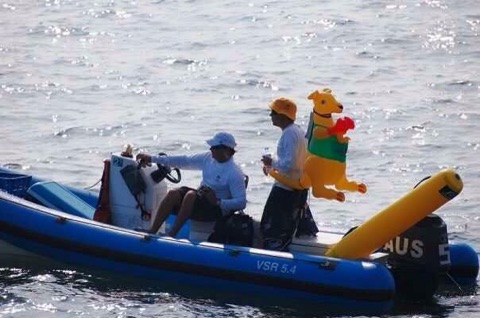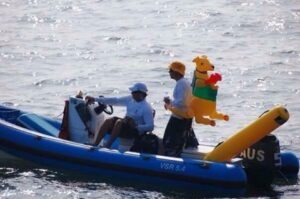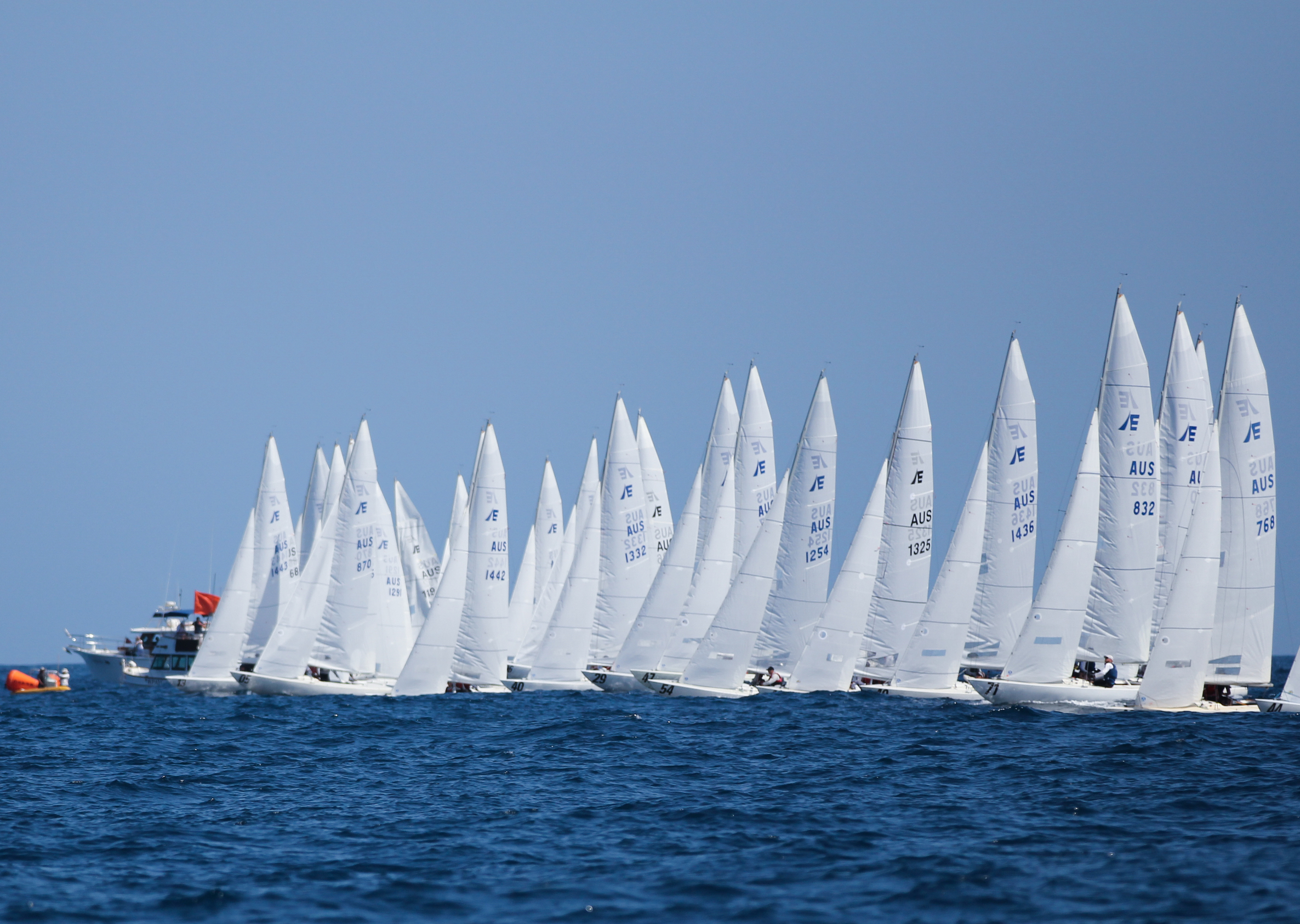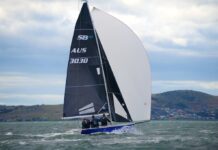

I have copied below parts of an interview that I conducted themed Observation and Sailing with Super Coach and super competitor Adrian Finglas. Adrian is an extremely experienced coach and has spent more hours in a rubber duck coaching than just about anyone else on the planet.
Brett: do you approach your regatta differently in big or small fleets?
Adrian: Great question, Brett. Sailing in big fleets is very different from sailing in small fleets, so the priorities have got to change.
The big fleet, you know, the basic thing that I think about is risk, so you’re always trying to minimize the risk. It’s a little bit like gambling, going to the casino, putting all your chips on the table, and having a crack.
But, you know, sailing in small fleets is more about speed. And so, yeah, the different way you approach regattas, depending on the numbers is definitely something you think about.
FREE BOOK – TIPS FROM SAILING LEGENDS
Brett: How do you avoid, or do you avoid risks on the racetrack? Sailing at the level you are sailing at, you’re at the front of the fleet so probably you don’t need to take the same risks as someone back further in the fleet. Have you got any thoughts on that?
Adrian: I think it doesn’t matter where you are in the fleet, you’re always managing risk.
The regatta I just did with 90 boats, the Sabre states, there was a lot of risk involved at the start line. You had to be always managing the people coming in from behind, late in the sequence.
So just make sure that you’re not ever flat-footed. Always swiveling your head, making sure you’re looking around everywhere. Just trying to see or foresee the potential pitfalls coming up.
A lot about observation. Sailing in a big fleet you got to observe a lot. And that’s a skill in itself.
Brett: Part of that observation would obviously be looking for where the good guys are. You’ve got to plan your strategy based on who’s around you at the start.
Adrian: That’s an interesting thought, Brett. Many years ago, one of my mentors, the famous John Cuneo out of Queensland. John was a gold medalist in the ’72 Olympics.
When I was a young lad sailing Sabre’s, John said to me, “Starting is like being a boxer. If you stand flat-footed, you’re going to get hit.”
So in the regatta we just did, I was always on the move, always changing my gaze, looking for other boats coming in. But also changing my boat position. The competition has a little bit of doubt in their mind about what you’re going to do.
So, I love that old analogy, “Don’t be flat-footed on the start line. Keep moving and shaking and keep your competitors thinking.”
Brett: What you said about keeping your head out of the boat, I hear that from a lot of really good sailors. That’s probably one of their key differences from the rest of us further back in the fleet.
Adrian: You’re looking up the course along the way, there’s a few phases with observation.
You’re looking at long-term, midterm, and immediate-term, You’re constantly going through those observation phases to try to capture that information and change your plan.
And the older I’ve got, I’ve got glasses on, and I can’t see as well these days.
I am always washing my optical sunglasses so I can see up the course, to make sure I am capturing those little wind lines accurately.
Brett: You mentioned planning for legs. How far out do you plan the next leg? Do you have a plan before you get to the mark, or do you wait until you get there?
Adrian: No, I try to get a bit of a snapshot…especially on what the breeze is doing before I approach the mark. The other thing, as I’m sailing to the top mark, I have a bit of a visual on where the reach mark or the downwind mark may be.
So you’ve got a basic idea of where things are situated. So you got that rough plan in your head and then when you get to your mark. You’re prepared somewhat for the visual on where the mark is or the pressure is.
Brett: And whether you’re going to go left or right on the downwind.
Adrian: Yeah. So you do plan ahead a little bit.





